Jaap de Goede has written a witty article about his experience with LEGO Serious Play workshop on the website of SAGANET – the Serious Games Professionals Network in the Netherlands. He describes the experience as following.
Why don’t we do Lego Serious Play, said colleague Diederik to me. I frowned. If you are like me, then you may have wondered what on earth playing with Lego would be good for, as a serious play activity. Lego is for kids, right? How little did I know.
This 18th of May we had our Lego spring meeting at Utrecht University, with many SAGANET members I had never seen before, lecturers and employees from the University of Utrecht itself, and a handful of interested people invited by our members. We were about thirty in all, a nicely mixed group which gave ample opportunity for networking afterwards.
Read more from the original source here>
Our own Netty Wester was our host for the first half, and as a certified Lego Serious Play coach showed us around with a skillful yet delicate hand.
We started out with individual exercises, building abstract concepts like “a fantastic day” or ourselves and our qualities. How do you go about that? A fantastic day in Lego blocks, puppets and sharks? Weird. But we did. And we learned from each and about ourselves.
I was surprised that several at my table did the same as I. A fantastic day had danger in it – and just managing to fix things and make it work out.
Then we proceeded as groups at our tables, expressing in lego what our group qualities would be, and how we would operate as a team..Stories unfolded in lego.
I had the big Duplo blocks for toddlers, so I guess my models tended to be more simplistic and big. Whereas the technical people at my table took out al the cogwheels they could get to build moving machines.
“I did not set out to tell so much about myself”, remarked one of my table fellows. But yet he did, and both he and we learned from it. The stones work on a partly subconscious level, potentially passing by our rational faculties and social inhibitions.
Our next speaker, UU educational innovator Jasper van Winden confided that he had no LSP certification. Maybe for big clients you’ll want to buy in to the somewhat pricey Lego legacy, on one hand to hone your skills, on the other to demonstrate your worth to your clients. But you can use Lego just as well without. It’s a useful toy and tool, which you can combine with your practice, if you just learn how.
Of course as attendees we had one question coming up now. How can we use Lego in our own daily work? Jasper did not give us the chance to pose that question. Instead he let us answer it for ourselves – by building a lego work to show the answer for just that question.
So… what was our answer? The different tables gave different answers, all just as valid.
– using Lego as stepping stones to more complex games
– visualising a problem and a path to a solution
– establishing a new common language to attack a joint task or problem
– having blocks on the table invites all to join in the building of a solution, possibly breaking trough hierarchic barriers
Will lego work in groups which where there is no willingness to play? Probably not. But if a client wants to try, I now also believe Lego can be a very serious gaming tool.
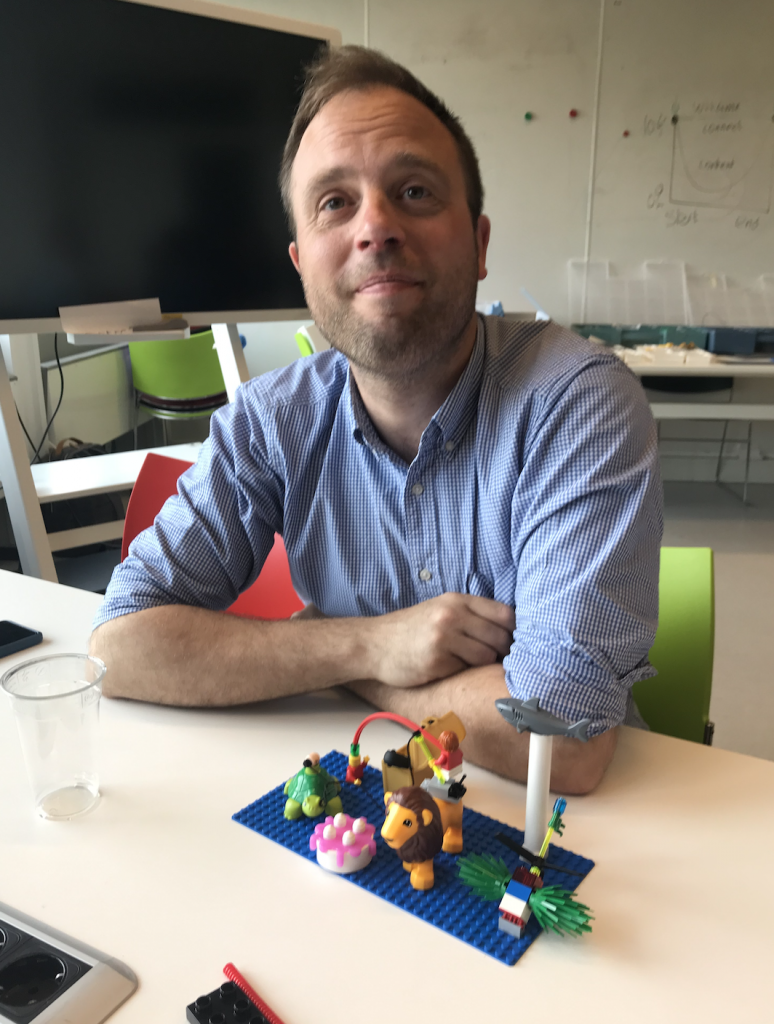
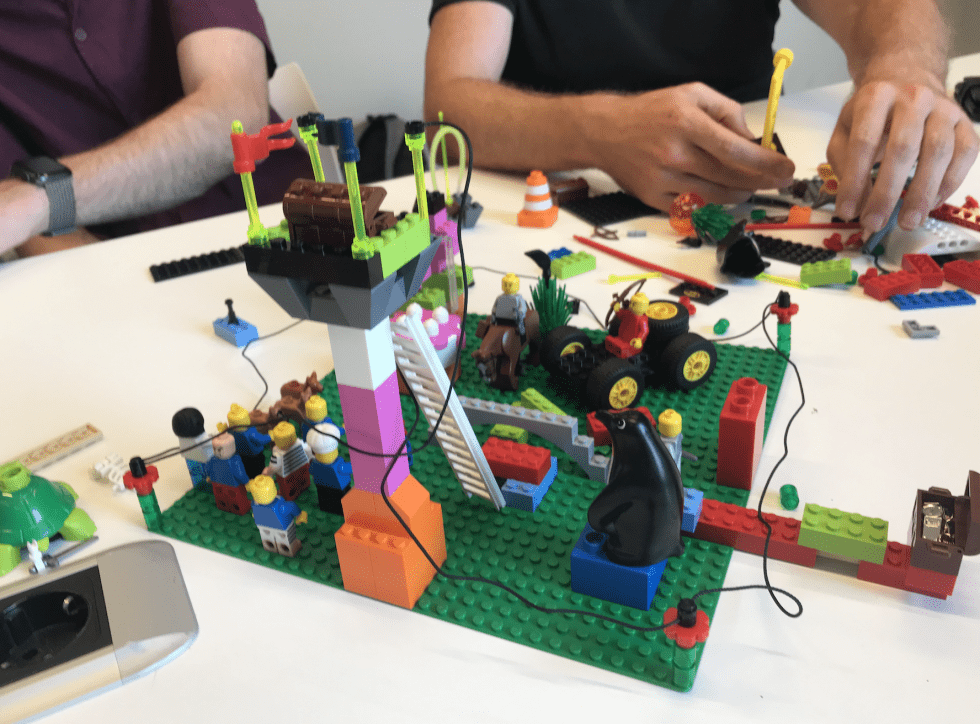
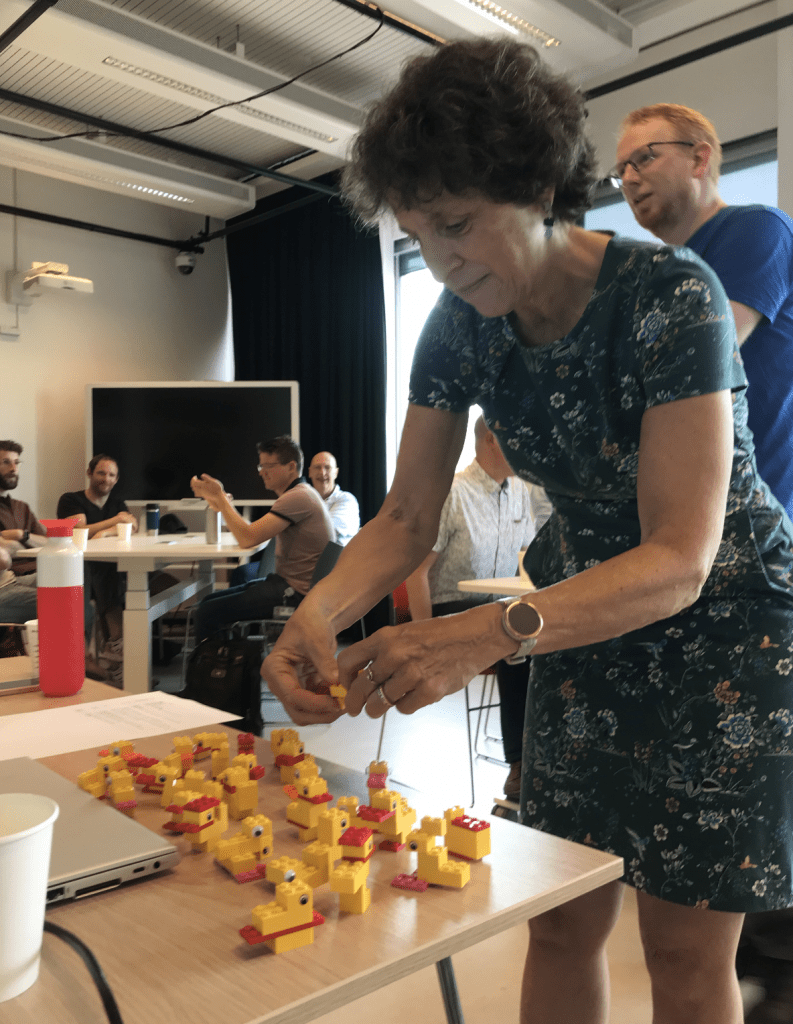
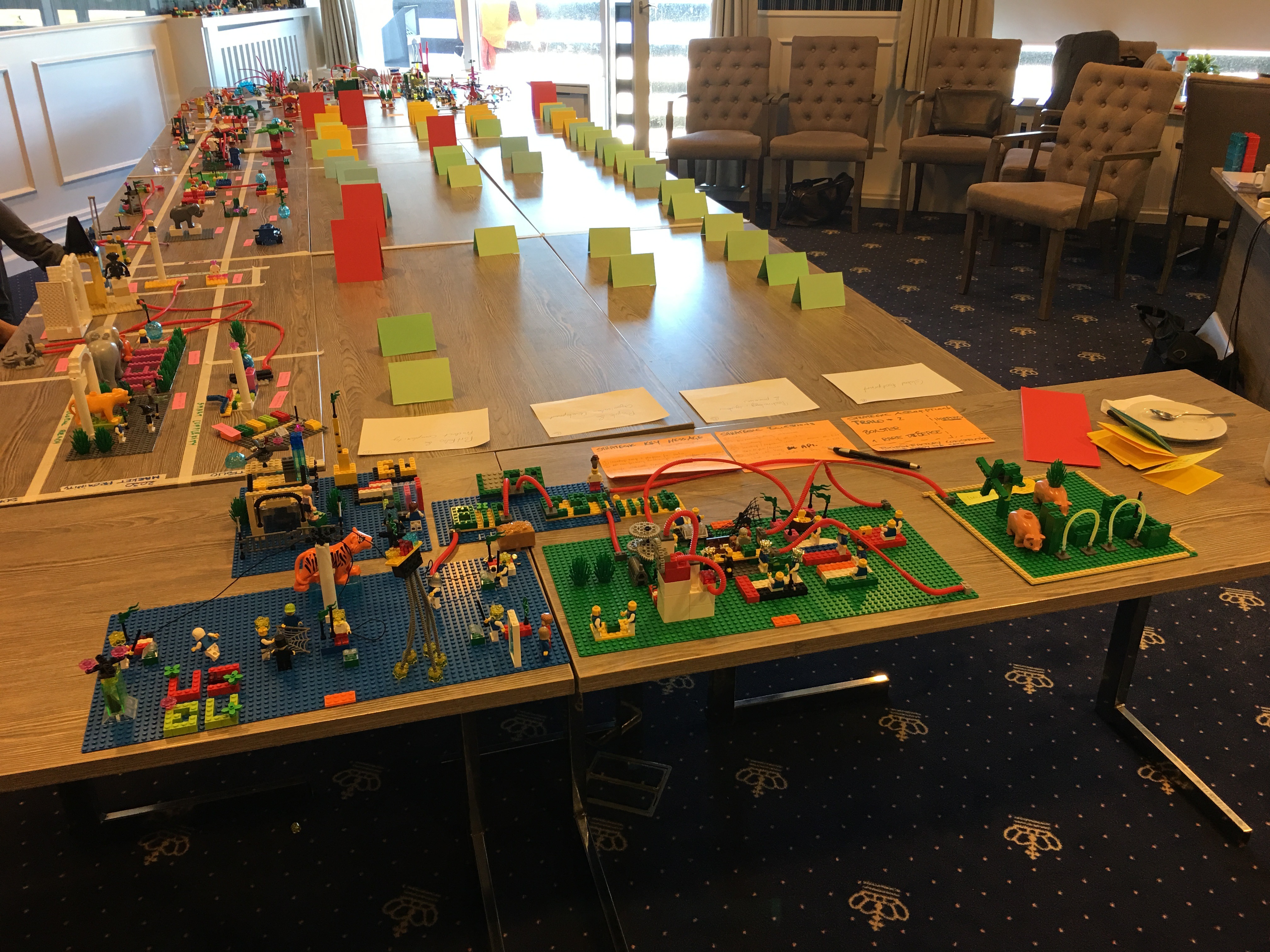

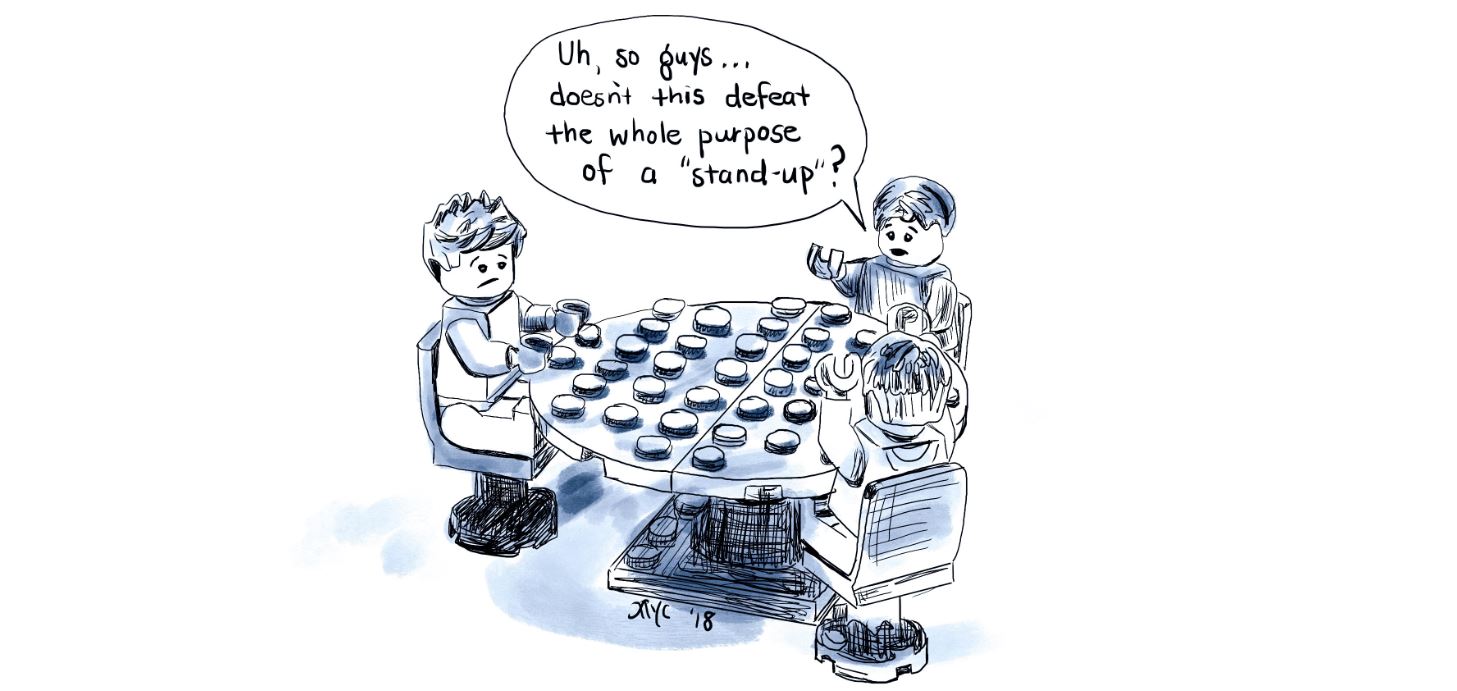


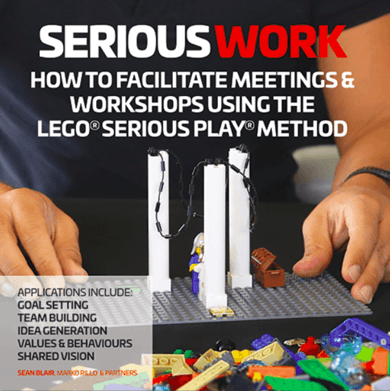
 Become a LEGO Serious Play facilitator - check one of the upcoming training events!
Become a LEGO Serious Play facilitator - check one of the upcoming training events!